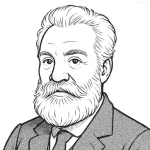“Don’t go around saying the world owes you a living. The world owes you nothing. It was here first.”

- November 30, 1835 – April 21, 1910
- American
- Author, humorist, and lecturer
table of contents
Quote
“Don’t go around saying the world owes you a living. The world owes you nothing. It was here first.”
Explanation
Mark Twain’s quote offers a blunt reminder about personal responsibility and the importance of understanding our place in the world. By stating that the world owes us nothing, he suggests that entitlement—the belief that the world should provide for us without effort on our part—is misguided. The phrase “it was here first” underscores the idea that the world existed long before any of us arrived, and its resources and opportunities are not there simply to be handed to us. Twain’s message is one of self-reliance and realism, urging individuals to work for what they want rather than expecting handouts or privileges due to their existence alone.
Twain’s critique reflects his broader views on society and human nature, which often involved challenging assumptions about fairness and privilege. At a time when the American Dream was increasingly linked to individual success, Twain’s message was a sobering counterpoint to the idea that life was meant to provide opportunities for everyone regardless of effort. He believed that people often needed to work hard and take responsibility for their own lives instead of relying on luck or external circumstances to provide them with a living. In a world full of competition and struggle, success was not guaranteed, and expecting it without effort was unrealistic.
In contemporary life, this quote continues to be relevant, especially in conversations about entitlement in both personal and societal contexts. In an era of economic inequality and social unrest, the idea that “the world owes you nothing” challenges the widespread belief that individuals deserve success or prosperity without putting in the effort. It reminds us that the world does not revolve around any one person’s desires, and that it is our own actions and choices that ultimately shape our futures. Twain’s message encourages independence and self-determination, values that are just as important in today’s fast-paced and complex world as they were in his time.
Would you like to share your impressions or related stories about this quote in the comments section?


